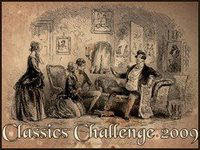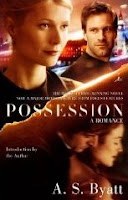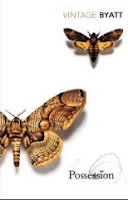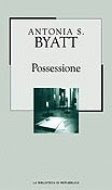
Many of us have had an opportunity to interview an author, mostly through email, but perhaps even on the phone or in person. In fact, many of you have become experts at author interviews. So this week, let's pretend that we can get in contact with one of our favorite characters and interview them. What would you ask Mr. Darcy if you could send him an email. What would his answers be like? What would you say if you could just call up Liesel or Rudy from The Book Thief and ask them anything? How would they answer your questions? What if you could invite Jo March or Anne Shirley to lunch, what would the conversation be like?
Now, have at it and get making those calls and sending those emails to your favorite characters!
 Getting there was easier than I’d expected. After some weeks of peppering Oxford with messages that I desperately hoped would survive the intervening years - and be found by the right people - I took up my position an hour early. The corner of the cemetery I’d selected had no graves of recent date or historical interest, but it never hurt to be careful when the presence of a single photographer could prevent the opening of the net. Eight minutes before the scheduled time I saw the faint shimmer and stepped forward to be whisked into the future mere moments before a group of daytrippers from Bristol wandered into the graveyard.
Getting there was easier than I’d expected. After some weeks of peppering Oxford with messages that I desperately hoped would survive the intervening years - and be found by the right people - I took up my position an hour early. The corner of the cemetery I’d selected had no graves of recent date or historical interest, but it never hurt to be careful when the presence of a single photographer could prevent the opening of the net. Eight minutes before the scheduled time I saw the faint shimmer and stepped forward to be whisked into the future mere moments before a group of daytrippers from Bristol wandered into the graveyard.
On arrival I counted to ten before opening my eyes. I was definitely not in 2009 - the increased wear on the headstones told me that; and I wasn’t in the lab. I pondered the nearest headstone for several moments and was relieved to discover that my thoughts did not attempt to wax poetical.
“Are you Ms ____?” inquired a voice behind me.
I started (were tightly-wound nerves a side effect?) and turned to see a fair-haired young man on the other side of a Victorian monstrosity. “I am,” I said, edging around the maudlin marble angel.
“And I’m Ned Henry, as I’m sure you’ve guessed. Welcome to the future.” He led me toward the cemetery gate, eyeing me askance as he did so. “Are you feeling all right?”
“Fine,” I assured him.
“It’s just that you were squinting, and I wondered...”
“No time lag, just myopia,” I said, retrieving my glasses from my bag, where I’d stowed them for safekeeping. “You know, Verity’s right - you do look rather like a young Lord Peter Wimsey.”
Ned brightened at the mention of Verity. “You won’t get to meet her, I’m afraid,” he said. “She’s in 1937 at the moment. And I can only spare a short time before I have to go to 1946.”
“Another cathedral?” I asked sympathetically, as I tried to concentrate on crossing the road rather than gawking at the changes 50 years had wrought. “I’ve no connection whatever to the Schrapnell family,” I added hastily, as his grimace was swiftly changed into a smile. “Grumble all you like.”
“Oh, thank God. That woman is driving me insane! She expects me to stay with her through the entire project, and doesn’t seem to realise that with her level of perfectionism I’ll be collecting the pension before even half the cathedrals are built. Coventry was bad enough but I swear she’s getting worse.”
I was tempted to point out that Lady Schrapnell would be dust before Ned was an OAP, but suspected that the woman would stay alive through sheer force of will until the last cathedral had had its grand reopening. “Look on the bright side,” I said. “You’ve got Verity to keep you sane.”
He shot me a dark look. “Only so long as Lady Schrapnell fails to drive Verity insane.”
I couldn’t argue with that.
We arrived at a small apartment in a quiet street, and I reluctantly dragged myself away from my touristy staring and followed my host upstairs. The interior proved to be an odd assortment of styles and times, late Art Deco alongside ersatz Victorian chintz cheek by jowl with things more modern than anything I could recognise. I supposed it was an inevitable consequence of spending so much time among the fashions of the past. Out of this amalgamated décor wandered a grey and white cat, which began twining itself about my ankles. “Penwiper, I presume?” I asked, bending down to stroke it.
“It is.” Ned leaned closer and lowered his voice. “Perhaps you wouldn’t mention having seen him? He was supposed to be back at the lab before Verity left, but...”
“I’ll hold my tongue - and my pen,” I promised, settling myself in a comfortably overstuffed armchair and burrowing among the inordinate amount of stuff I’d deemed necessary for an afternoon’s journey to 2059. Ned briefly dropped onto a sofa opposite and immediately leapt up and vanished into the kitchen. By the time he returned with a steaming teapot I’d unearthed notepad and pen from under my umbrella, water bottle, food, wallet, keys, sunscreen, book, nail file, map, camera, sketchpad, pencils, glasses case, scissors, safety pins, string, kleenex, first aid kit - hey, it never hurts to be prepared! - and a three-month-old train ticket. And so the interview began.
Out of curiosity, which of my messages was found, and by whom?
It was the one you left in that copy of Reverend Bohring’s monograph on Roman and Italic Fonts on Memorials in East Anglian Cathedrals, 1789 - 1821. Clever of you - naturally that woman’s obsession with details covers the precise shape of the serifs carved onto the tombs, so of course we had to read it. Three times. Carruthers found it - no one had looked at it since you.
Ah, yes, Carruthers - he was with you in Coventry when you were pulled off the project due to time lag. Have you suffered from any other instances of it since?
Time lag is an occupational hazard when working for Lady Schrapnell. You think you’ve taken care of everything, and as soon as you get back she’s thought of half a dozen things more, and back you have to go. And nothing will convince her that time lag exists. There was a plot last November to drag her through the net a few times so she could experience it for herself, but nothing ever came of it. We don’t have enough free time to hatch conspiracies.
Is the bishop’s bird stump the most monstrously hideous artefact ever created by mankind?
I hope so! I don’t want to think of what could possibly be worse. Hopefully nothing connected to any of the cathedrals Lady Schrapnell’s rebuilding, so I can remain in blissful ignorance.
Wise idea. It sounded dreadful. Tocelyn seemed quite taken with it, though. Have you ever been back to visit the people you met during To Say Nothing of the Dog - Terence or Professor Peddick, say?
Not yet - it’s on my list of things to do if I should ever again have more than a day at a time to myself. I’m starting to think the only way I’ll manage it is to engineer another severe bout of time lag. Actually, that idea has possibilities ... I wonder if I could get Verity to do the same? But I’d like to take back some kind of fish for the Professor so one of us will have to have their wits intact.
How’s the cat reintroduction project going?
Quite well, I believe. Mr Finch is still making trips to the nineteenth century and returning with discarded kittens, so the species isn’t back on its feet yet. And Penwiper is still needed at the lab, where of course we always take him whenever he’s wanted with admirable promptitude.
Of course.... If you could choose something from the past, something that’s been lost, and recreate it á là these cathedrals, what would it be?
Something small! I think I’d choose a row of ordinary houses, a relic of how everyday people once lived and not the Lady Schrapnells and Tocelyns of this world.
A wonderful idea.... Have you ever considered a trip back to the first decade of this century?
Actually, I haven’t; I’m purely - well, mostly - twentieth century, though that woman occasionally takes advantage of my experience to pack me off to the 1880s if no one else is available. It sounds like a nice time to holiday in - after the cathedrals were destroyed and before anyone conceived the devilish notion of rebuilding them.
Thinking of cathedrals being destroyed - what happened to the new recruit who was with you in Coventry?
He transferred to a strictly academic position - one where he doesn’t have to go through the net or handle complex implements like torches. Admin, basically.
Are the scientists any closer to determining how the net actually works?
I heard that there was some progress made recently, but it was all very technical. I gather that until they know exactly how it automatically prevents incongruities, they can’t know how it allows time travel. However, they have succeeded in devising a way to move people and objects between two points in the past without them going via the lab - as you’ve just seen for yourself.
How did the history department come to approve of Connie Willis’s novels being written at all, much less transported back several decades for publication?
That was the PR department’s doing, not the history department’s. They felt that the notion of time travel as an academic research strategy would be much more easily accepted if the public had already been introduced to it through a nice non-threatening medium. Like an entertaining novel or two. They approached Mr Dunworthy and he recommended those exploits which he felt would simultaneously amuse, instruct, and warn of the potential dangers. Though I must point out that he wasn’t happy about being obliged to do so - he takes our research very seriously.
So was my visit also the PR department’s doing?
Well, yes. With blogging so popular back then - now, for you - they felt that it would be a great way to further promote the fine work being done by the Oxford University Department of History. And that anyone so creative in their efforts to contact us would do a good job of it.
“Nice to be appreciated,” I remarked as I stowed my notebook in my bag and made a mental note of where in the jumble of objects it was. I looked at my watch. I would be just in time to catch the first opening of the net. “Those technicians of yours - they do know just when to send me, right?”
“Don’t worry,” Ned assured me. “Badri’s going to take care of it - he’s recovered considerably since the events of Doomsday Book. He’ll get you back home safely.”
I shelved my mental images of being dropped back after the buses stopped running and having to walk back to my hotel at three in the morning. Ned grabbed his keys and together we made the return trip to the churchyard, as empty of living people in 2059 as it had been fifty years earlier. Along the way I took a few snaps of some of the more noteworthy features of future life.
The net had not yet appeared when we arrived. “I know it was done under sufferance, but thank you for talking to me,” I said. “I’ve really enjoyed this afternoon.”
“And I really enjoyed the chance to vent my feelings about Lady Schrapnell, so thank you,” he replied. “But there is one thing...”
"Yes?”
He held out one hand. “The film from your camera. Mr Dunworthy would have my hide if I let you risk creating an incongruity.”
I took the film from the camera - thankfully it had been a new reel - and handed it over with a show of reluctance. After all, I thought, as the net shimmered into view and I waved goodbye, I still had my memories - and I always was good at drawing....
Read my reviews of To Say Nothing of the Dog and Doomsday Book.
 I have been longing to do this meme since I first saw it, but this week was my first visit to the library all year (the horror!). My excuse is that my TBR box is stuffed to bursting with my recent acquisitions so I had more than enough to choose from at home. But it’s hard to resist the library’s siren call for long....
I have been longing to do this meme since I first saw it, but this week was my first visit to the library all year (the horror!). My excuse is that my TBR box is stuffed to bursting with my recent acquisitions so I had more than enough to choose from at home. But it’s hard to resist the library’s siren call for long....



























